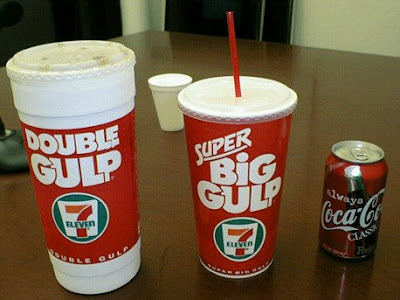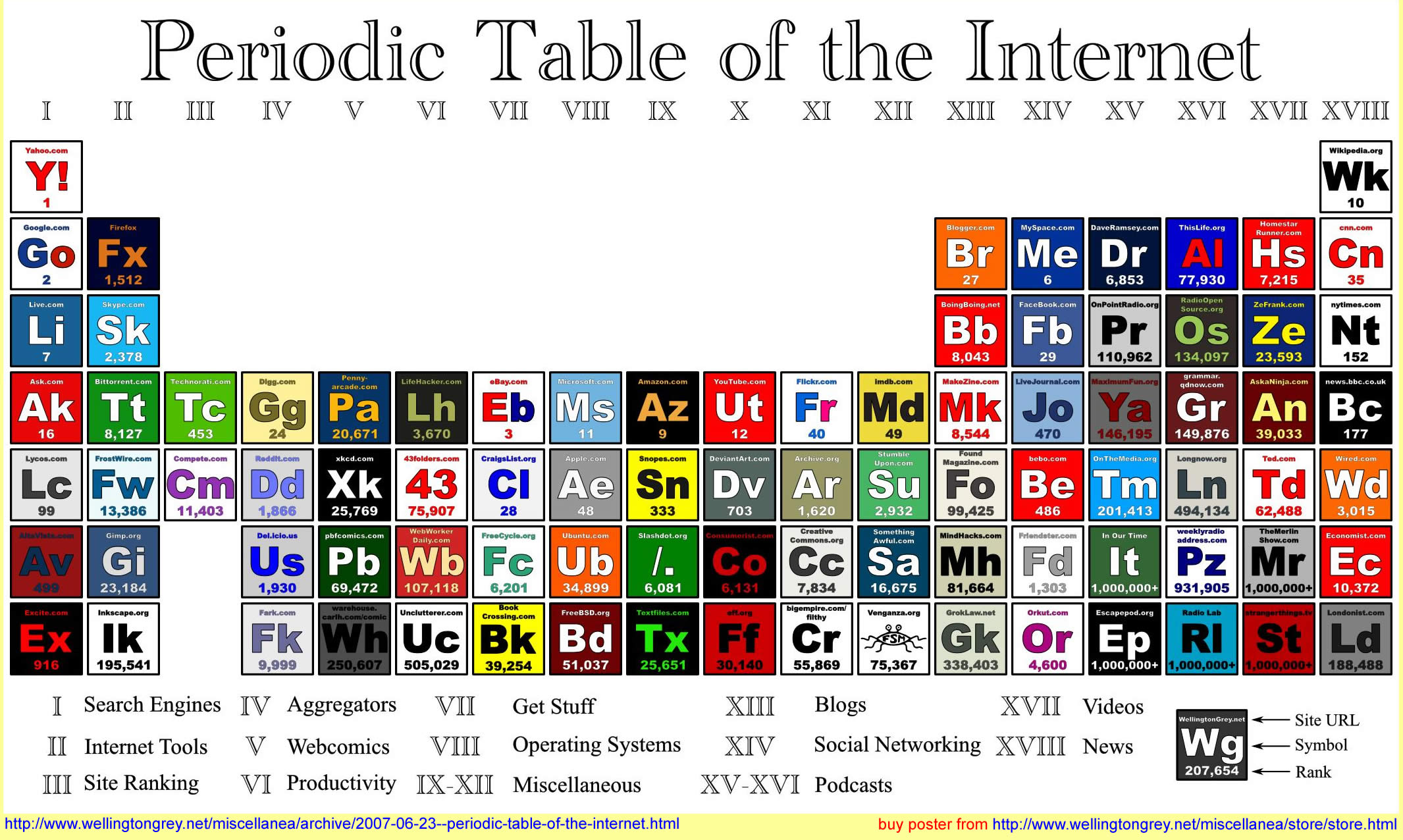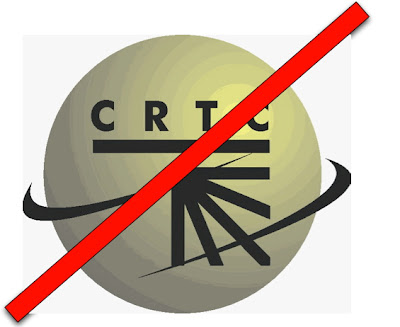Considering the 7-11 1.8L Double Gulp fountain drink: a fountain pop option that shouldn't rationally exist, yet provides a sense of accomplishment.

Considering the 7-11 1.8L Double Gulp fountain drink: a fountain pop option that shouldn't rationally exist, yet provides a sense of accomplishment.

I don't know if she drank so that she could help see Orson, but apparently Cheryl Mork of Saratoga, Wisconsin just couldn't stay sober (and out of her car) long enough to get convicted for the 3rd, 4th, 5th, 6th, or 7th offence of drunk driving. Instead, they had to package them all together in a tidy bundle that resulted in 3 years in prison, 180 days in jail, and 5 years extended supervision.
During her sentencing Mork apologize by sitting face first in a chair and saying, “I’d just like to apologize to my fellow human beings for putting their lives in danger.” Although she didn't add, "especially that 7th and 8th time 'cause I was really shitfaced! Na-Nu! Na-Nu!"
She was sentenced by Wood County Circuit Court Judge Zappen Jr., whose actions really hold little interest to me other than the fact that it has become my new favorite tongue twister... try it 5 times fast!
I never thought that I'd fear the idea of zipping around like so many characters from 60s sci-fi movies, but does this car look safe to anyone. Don't get me wrong, it's looks ultracool, but will this last five minutes on roads with ice, snow, or in temperatures of -20? Doesn't it look like one could just kick the axles right off this thing?
I certainly admire that the "all-electric three-wheeled two-seater" will apparently be ready in October '09 for a relatively decent price point of $25000-$45000 and "get the equivalent of 200 mpg and go 100 miles on a charge."
I really do admire the effort, but unless I'm driving this thing on the Salt Flats I'm not feeling too confident.

If the stats developed by the UN are right, and the BBC hasn't misrepresented them at all, and I can wrap my head around this number, there are 1,000,000,000 (that's one billion folks) frogs culled to get to the world's plates every year:
"Frogs legs are on the menu at school cafeterias in Europe, market stalls and dinner tables across Asia to high end restaurants throughout the world," said Corey Bradshaw from Adelaide University in Australia. "Amphibians are already the most threatened animal group yet assessed because of disease, habitat loss and climate change - man's massive appetite for their legs is not helping."
Now while I don't want to even think about the numbers for chickens, cows, fish, or pigs, I've only got one thing to say. If you can watch Kermit sing "It's Not Easy Being Green" and ever want to eat a frog again, you have no heart... or you may be the Swedish Chef.
Now that Web 2.0 has become a redundant term (after all, don't we expect the web to be interactive, feeding, streaming and end-user tweakable these days) when will the terminology move to the next step up the version hierarchy.
I have to apologize in advance, because while this lovehate will incorporate many open-ended questions that I invite people to answer for me, the majority of the discussion will not revolve around the real object of my derision: version-branding everything... but I digress 3.5.
When the Web 2.0 moniker became de rigeur around aught four, more people clamped onto the fashion of the version upgradability of the name as opposed to knowing what it was all about.
Remember the first time you could easily manage your RSS feeds, or the first time you got to move widgets around a page on the fly to create a custom portal experience? Remember the first time you Dugg something by clicking a simple button that updated on the fly, or giving a thumbs-up or down to a comment? Remember seeing your first REALLY cool freaky-styley Flash interface and then getting annoyed by them like so many animated gifs and beveled buttons of the past? Remember finding websites by designers that learned how to use flash for substance instead of style? Remember when social networks opened our eyes from a history of forums and newsgroups or even listservs?
Most of us remember all of this as the nascent signs that would be the explosion of Web 2.0 and yet, to me anyway, and I'm guessing many others, that seemed so long ago. Surely we've hit the version change or the upgrade somewhere along the way. We must be at Web 2.4.6 or Web 2.0 SP-1 by now. If we're going to buy into the branding of the Web as a version number, shouldn't we be willing to run with the entire procedure?
And here's a BTW 4.6: what ever happened to the Internet? Now, I could be wrong, but didn't the web used to be part of the internet? Wasn't "Internet" the global catchphrase dropped by politicians who wanted to seem too cool for their own good. Has Web 2.0 not only usurped "Web" but also "Internet" as well? Has the term "internet" become nothing more than a series of tubes? Have the words become interchangeable due to the Web's popularity?
And just by way of a WTF? 5.1, if Web 3.0 is supposed to be the advancement of server models that are not just storage and retrieval, but of execution as found in already existing web productivity applications like those promoted by Apple, Microsoft and, most prominently, Google, haven't we breached the outer vestiges of Web 3.0 already? Haven't we started to float through the Cloud? Surely we're starting to reach some of the potential if not benchmarks that would constitute a version shift, yet no one is ready to say we're officially at the Web 3.0 stage yet, but how about 2.5, 2.3, 2.1... hell, I'd even take 2.0.1 alpha at this point because it seems no version advancement moves so slow as that which evolves before our eyes.
And so if constant evolution is actually preventing a clean division between 2.0 and 3.0, who will ultimately be the voice responsible for leading us from the arbitrary muck and mire to the magic number? Will it be something as simple as a prompt from the social networker with the most followers? A well-placed tweet that gets re-tweeted ad infinitum until, by no fault, wish, cause, or ability of our own, we live in a Web 3.0 world and the first bloggers and eager tech column writers start heralding the advancements that are bound to be present in Web 4.0.
Maybe by then it will be called iWeb or MSWeb or GoogleWeb or The People's Web Republic of the United Provinces of China or Skynet.

While I know that many readers south of the 49th parallel will have no idea what the CRTC is, and probably many Canadians won't either, I've had it with their ridiculous protectionist practices when it comes to primetime television.
I'm an avid television watcher. Some might call me an addict though I can't hear them because I'm watching Big Bang Theory. While many of you in the US are used to having local affiliates broadcast network shows and take advantage of being able to sell and show local ads to garner their revenue, the permissions of the affiliates only extend to their own channel.
The Canadian Radio and Telecommunications Commission employs methodologies that have been prompted by the lobbying efforts of local Canadian stations and cross the line from logical to manipulative and destructive to the medium. In essence, the CRTC mandates that where a Canadian station is showing the same show as a US station that can also be seen by a viewer, the Canadian channel will "take over" the US channel for the entirety of the broadcast.
For example, I cannot watch Lost on WKBW from Buffalo (Cable 9) because at 9pm my local CTV affiliate is showing the same episode and Cable 9 becomes Cable 16 for the entire hour. Essentially, the cable providers have been ordered to redirect feeds to accommodate this protectionist regulation. Why shouldn't I have the right to watch to the show through a US feed if I want to? What harm does it do to CTV but for the chance their advertising will go down... and there's the rub.
Some of you might be thinking "what difference does it make if they're showing the same episode on both channels?" There are a few problems that are not clearly evident unless you are subject to it, but I'll try to illuminate:
When I emailed the CRTC with this complaint earlier this year, they claimed Canadians wanted it this way and it was the law. First, if Canadians wanted to watch Canadian feeds, they could still do so. Second, laws evolve and are prone to change when people realize how wrong they are.
The CRTC has a place. The CRTC has a purpose. Its place should not be on a US channel that I pay for. Its purpose should be to offer me choice, not restrict it. If you're Canadian, go to the CRTC website, register a complaint and see how little they're willing to even discuss remedy. If you're American, be happy we don't spend billions of dollars each year on television programming, because if you wanted to watch our stuff, your government would probably be lobbied to do the same thing.

On the folly of citizen and network journalism and how Twitter might
plan on making money... oh, and girls being married to frogs.
Well, when you thought you'd heard it all, something appears in the far periphery of your radar that just doesn't seem to make any sense. With this in mind, I offer up the lead from the article entitled "Two Girls Married Off to Frogs":
In a bizarre ritual, two minor girls, both seven, from the remote Pallipudupet village in Tamil Nadu's Villupuram district were married off to frogs on Friday night. The ceremony, an annual feature during the Pongal (harvest) festival, is conducted "to prevent the outbreak of mysterious diseases in the village."
I figure if we were, for years, ready to accept the marriage of Miss Piggy and Kermit, this isn't too far of a stretch... I fear, however, that California may have to set up another Prop referendum to make sure this doesn't happen in that state.
No word in on whether any of the frogs have turned into Prince or the frog formerly known as Prince.

Within the context of watching Sesame Street as a child, most of their short cartoon clips seemed completely normal. Outside of such a context these clips are small surreal bits that seem better matched with Sprockets than Sesame.
...and just because I couldn't resist, the Count's origin with Cookie
Monster. The best part - Cookie's exit at the very end!